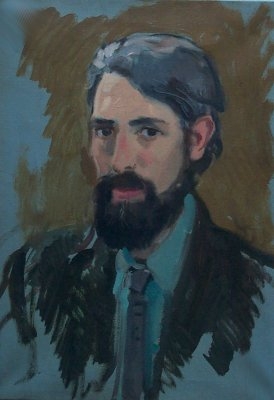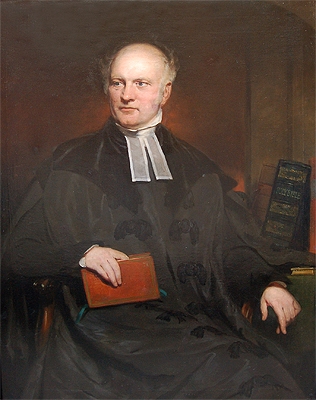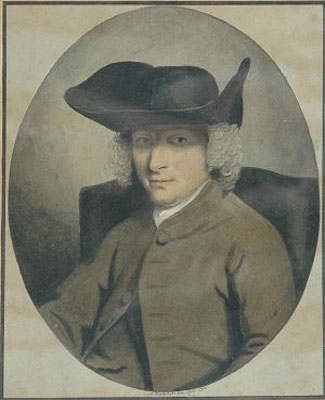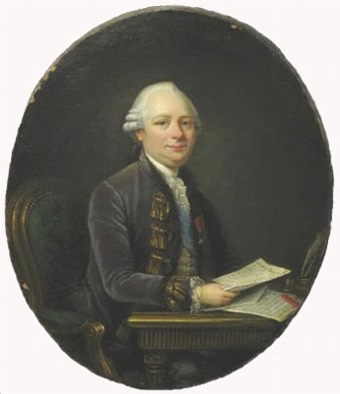featured item
portrait of sir (edward) john russell obe, dsc, frs (1872-1965)
- View other items in:
- antiques interior design modern and vintage
- other interior design
artware ltd
Enquire about this antique
Artware Ltd has 565 antiques for sale.
click here to see them all
Russell, Sir (Edward) John 1872-1965, agriculturalist, was born 31 October 1872 in Frampton on Severn, the eldest of the nine children of Edward Thomas Russell and his wife, Clara Angel, daughter of Captain Samuel Hallet. His maternal grandfather owned barges and had a wharf in Lambeth; his paternal grandfather was in the coal business. His father was initially a schoolmaster with an independence of judgement that led to frequent conflict with his employers and to consequent changes of employment. Disagreement with the managers of his school, and with the conservatism of Gloucestershire farmers, caused a move to Nether Hallam, near Sheffield. Because the school authorities there refused him
leave to attend a course by T. H. Huxley [q.v.] in South Kensington, he went to Lee Common, near Tring, but soon disagreed with authority over the enclosure of common land and left for a lay appointment at a Unitarian church in Leicester. By this time Russell was six; he was sent to stay with an aunt in London for a time to escape an epidemic of scarlet fever in Leicester. In 1882 his father moved to another lay appointment at a Domestic Mission in Birmingham. The deaths of two of his children, and the wish for a larger salary, were the cause of that move. Perhaps because of the varied educational experience that resulted from these moves from town to town, and from
several changes of school within a town when his father became dissatisfied with the teaching, Russell made excellent academic progress. Furthermore, his parents prized all aspects of knowledge and had an extensive collection of scientific books. At the age of thirteen he went to the recently opened Technical School in Birmingham and decided there that chemistry would be his vocation. He did very well at that school, but his parents moved to London when he was fourteen, and he was obliged to find work. He was apprenticed to a homeopathic chemist in London, which he found unrewarding, but he made good use of night classes and private reading. Having matriculated, and now nearly nineteen, in 1891 he
entered the Presbyterian College in Carmarthen. After a year he went with a scholarship to University College, Aberystwyth, and thence, in 1894, to Owens College, Manchester, where, having graduated B.Sc. with first class honours in chemistry in 1896, he started research on rates of reaction in thoroughly dried gases. For his researches at Manchester he was awarded a D.Sc. by London University in 1901. Intense exposure to Nonconformist religion, close connection with various missions and charities, and his father''s
republican sympathies, made Russell dissatisfied with the condition of the urban poor. Pure chemistry was beginning to seem too limited a subject. He therefore went to Copenhagen in 1900 to learn about agricultural co-operatives and the
biochemistry of yeast. In 1901 he was appointed lecturer at Wye Agricultural College and found his vocation. Russell was always a great walker: at Wye he learnt that walking around fields was not the same thing as farming them, and that
agriculture was not a large-scale solution to town unemployment. In 1903 he married Elnor (died 1965), whom he had met two years earlier at the Manchester Mission, the daughter of Walter Oldham of Manchester, and formerly a merchant of Penang and Singapore. They had five sons and two daughters. One of the sons died in 1926 at the age of sixteen, after a road accident, and another was killed in action in 1945, at the age of twenty-seven. One of the surviving sons, Edward Walter, became professor of soil science at Reading University. In 1902 Rothamsted Experimental Station was moribund. Then (Sir) A. D. Hall [q.v.] was made director and matters improved. In 1907 Russell moved there and became director in 1912. Rothamsted was no longer moribund, but agricultural research still was. The President of the Board of Agriculture ''could not conceive of circumstances in which the Board would concern itself with research'' and the point of view of the Board was stated succinctly that British agriculture was ''dead and it was the Board''s business to bury it''. Russell changed such attitudes, and Rothamsted has grown steadily in size and influence. In 1910 a ?1 million Development Fund was set up for agriculture, part of which went to Rothamsted. When war began in 1914 Russell became a member of various committees concerned with government-financed research; this
brought more grants to Rothamsted. Government finance continued after the war and enabled new departments to be established. But it was an uphill task for there were those in influential positions who thought that Rothamsted should
become an institute for routine soil analysis. Russell records the strong opposition he met when setting up a statistics department. He showed skill, amounting to genius, in getting money from private sources. This skill was shown most
dramatically when he managed in seven weeks to raise enough money to buy the Rothamsted Estate which the public trustee was proposing to sell for ''development'' in 1934. His detestation of money lying idle led to useful, but disconcerting,
flexibility in Rothamsted finances. An accidental observation while at Wye started Russell and several collaborators on a detailed examination of the beneficial effects of partially sterilizing soil with heat or antiseptics. The method would not be practical on a field scale but is extensively used in glasshouses. After his appointment as director he had little time for research, and furthermore he undertook an impressive programme of travel to give advice and to gain experience of agriculture in other climates. He remained an enthusiastic traveller until nearly the end of his life and visited at least twenty countries?some several times.
During a visit to Sudan in 1934 he was disturbed by the lack of information exchange between that country and Britain. As a result he initiated the Imperial (now Commonwealth) Agricultural Bureaux.
Russell retired in 1943, but went on working in his new home near Woodstock. He wrote about fifty papers dealing with research, and published many lectures, addresses, and reports on his travels. Among his many books are Soil Conditions and Plant Growth (1st edn. 1912, 7th edn. 1937), World Population and World Food Supplies (1954), A History of Agricultural Science in Great Britain, 1620-1954 (1966), and The Land Called Me (1956), an autobiography. He was elected FRS in 1917, was appointed OBE in 1918, and was knighted in 1922. He was awarded gold medals from five bodies, and honorary degrees from eleven. Russell was rather short and, in his prime, lean. He moved quickly and walked leaning slightly forward and a little jerkily. When discussing a point of administration or finance he sat with his head tilted slightly to the right and, however complex the proposed arrangement, his bright blue eyes never lost their expression of innocent candour. He died in a nursing home at Goring-on-Thames 12 July 1965, surviving his wife by only a few weeks. There is a portrait by Edward Hall (1959).
Antiques.co.uk Ref: XH9THHFB
- Materials:
- Oil on Canvas
- Width (cm):
- 30 x 20 ins. (76 x 50 cms.)
Artware Ltd
Artware Fine Art specialises in fine antique, decorative and historical portraits and topographical pictures . We cover a period from the 17th and 18th centuries through to the 19th & 20th Centuries. We have over 150 portraits in stock, which can be viewed on our web site, each historical portrait has well researched biographical information both on the sitter and the artist.
Contact details
18 La gare
51 Surrey row
London
Greater London
SE1 0BZ
UNITED KINGDOM
T: 0207 921 97904
E: greg@artwarefineart.com
W: www.artwarefineart.com












